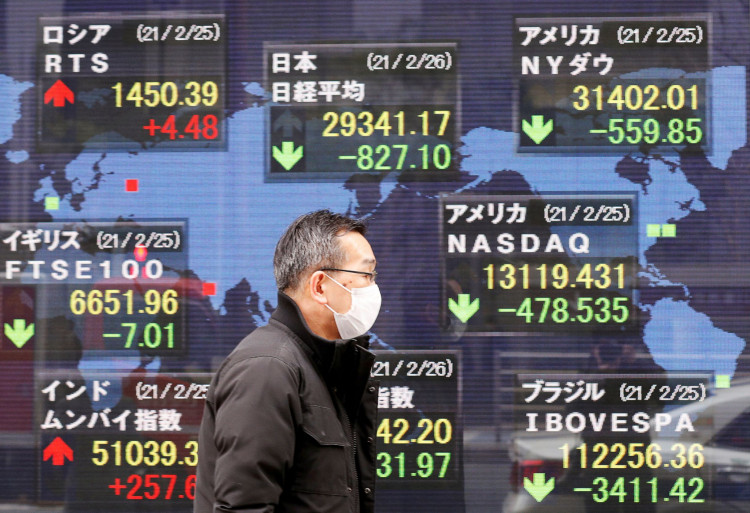Global stock markets rallied Monday after President Donald Trump announced a temporary exemption on U.S. tariffs for electronics, including smartphones and computers, easing immediate concerns for technology firms and investors bracing for higher costs. The S&P 500 climbed 1.5% in early trading, with the Nasdaq Composite up 2% and the Dow Jones Industrial Average gaining 441 points, or 1.1%.
Apple shares surged 5.3%, while Nvidia rose 2.3% and Dell Technologies jumped 5.9%, following Friday's U.S. Customs and Border Protection notice excluding certain electronics from the administration's 145% tariffs on Chinese goods. The move came days after Trump paused some tariffs for 90 days amid mounting pressure from market volatility and signs of investor anxiety.
"By the White House excluding Big Tech and the chip sector from the China 145% reciprocal tariffs, this took the doomsday scenario off the table and tech stocks will rally," Wedbush analyst Dan Ives wrote in a Sunday research note.
Markets in Europe and Asia followed suit. France's CAC 40 rose 2.4%, Germany's DAX added 2.7%, Japan's Nikkei advanced 1.2%, and South Korea's Kospi climbed 1%. In China, Hong Kong's Hang Seng Index rose 2.4%, and Shanghai's composite index gained 0.8%, boosted further by customs data showing a 12.4% year-over-year surge in Chinese exports for March.
Despite the market optimism, the administration's messaging remained ambiguous. On Sunday, Trump stated on Truth Social that "nobody" will be exempt from tariffs, even as electronics were spared in the recent announcement. He reiterated that electronics will still be subject to a separate 20% tariff tied to China's alleged involvement in fentanyl trade.
White House Deputy Chief of Staff Stephen Miller confirmed the electronics exemption was temporary. Commerce Secretary Howard Lutnick added in an interview with ABC News that new "semiconductor tariffs" could be introduced within two months as part of a broader national security review of the electronics supply chain.
Analysts warned that the reprieve may be short-lived. "Directionally, things seem to be getting more positive for buy-rated tech giants like Apple and Nvidia - but it isn't yet an 'all clear,'" Melius Research analyst Ben Reitzes noted in a report Sunday.
Investors have reacted sharply to the administration's trade signals, which have contributed to swings in the bond and currency markets. Treasury yields, which spiked last week, eased slightly Monday, with the 10-year yield falling to 4.40% from 4.48% on Friday. The dollar weakened against major currencies, reflecting a broader retreat from U.S. assets amid uncertainty over trade policy.
Trump, who announced the 90-day tariff pause last week after noting investor unease, said markets were "getting a little queasy." The president's policy shifts have kept businesses and markets on edge, particularly those with deep exposure to Chinese manufacturing.
Analysts at UBS had warned that without tariff exemptions, the price of Apple's iPhone 16 Pro Max 256 GB could jump from $1,199 to $1,874, depending on the company's pricing strategy. The electronics exemption alleviated those concerns, though it remains unclear how long the relief will last.
China's Ministry of Commerce welcomed the U.S. move as "a small step" but reiterated calls for Washington to cancel all remaining tariffs. Chinese President Xi Jinping, speaking from Hanoi during a diplomatic tour of Southeast Asia, said Monday that "protectionism will lead nowhere" and that a trade war would "produce no winner."




